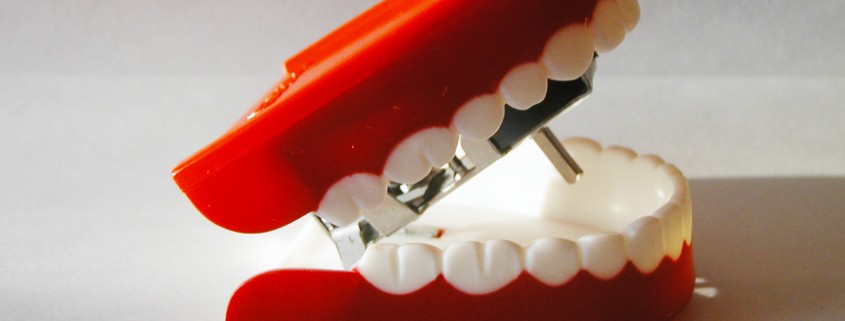Bruxism by Justice Dental, Lexington Kentucky
Bruxism is clenching or grinding your teeth. Most people are not even aware that they are doing this. In the United States, bruxism affects about 30 million to 40 million children and adults.
Why Do We Do It?
Some people grind their teeth only during sleep. This is called “nocturnal bruxism” or “sleep-related bruxism.” Others grind or clench their teeth during the daytime as well. This is thought to be related to stress or anxiety. Stress can occur for many reasons, including sad and painful events such as the death of a loved one or the loss of a job. It can also occur from joyous events such as a new job or the birth of a baby.
Bruxism can have a variety of causes. Some experts view bruxism as nothing more than a habit. It also can be a result of the body’s reaction when the teeth do not line up or come together properly. Bruxism also can be a symptom of certain rare diseases of the nerves and muscles in the face. In rare cases, bruxism may be a side effect of some medicines that treat depression. These include Prozac (fluoxetine), Zoloft (sertraline) and Paxil (paroxetine).
People with severe bruxism can break dental fillings or damage their teeth. Rubbing the teeth together can cause the outer layers of enamel to wear away, exposing dentin. This can result in tooth sensitivity. Severe bruxism also has been blamed for:
- Some cases of jaw dysfunction, also called temporomandibular disorders (TMD)
- Headaches when you wake up in the morning
- Unexplained facial pain
Symptoms
You may be a bruxer if you experience any of the following:
- Rhythmic contractions of the jaw muscles
- A grinding sound at night, which may disturb the sleep of someone who shares a bedroom with you
- A dull morning headache
- Jaw muscles that are tight or painful – This can make it uncomfortable, even painful, to open your mouth wide, especially in the morning
- Long-lasting pain in the face
- Damaged teeth, broken dental fillings and injured gums
- Painful jaw joint
Swelling (occasionally) on the side of your lower jaw caused by clenching. Chronic clenching exercises the jaw muscles. Like lifting weights, this makes the muscles grow larger. Once you stop clenching, the muscles will shrink and the swelling will go away.
Diagnosis
If you experience any of these signs and symptoms, see your dentist. He or she can determine if you are a bruxer and how best to treat it.
Your dentist will ask about your general dental health, what sources of stress you have in your life, and what medicines you take. If you share your bedroom, the dentist also may want to talk to that person. The dentist will ask about your sleep habits, especially about any unusual grinding sounds heard during the night.
Your dentist will examine you, paying special attention to the muscles in and around your jaw. The dentist also will look at your teeth for evidence of grinding. During this examination, your dentist will check for tenderness in your jaw muscles and the jaw joint. He or she also will look for broken teeth, missing teeth and poor tooth alignment.
A more detailed exam may follow if your dentist suspects that your bruxism is related to dental problems. In addition to checking your “bite,” (how your upper and lower teeth come together) the dentist will examine your teeth and gums for damage caused by bruxism. Your dentist might also take X-rays of your teeth and jaws.
About 30% of children grind or clench their teeth. The rate is highest in children under age 5. If your child grinds or clenches his or her teeth, discuss the problem with your family dentist. Most children eventually outgrow bruxism and suffer no permanent damage to their teeth.
Prevention
If your bruxism is related to stress, professional counseling may help. You also can try strategies to help you relax. It may help to cut down on stimulants such as tobacco and caffeine.
In both children and adults, tooth damage related to bruxism can be prevented. The usual method is to wear a night bite plate or a bite splint (a dental appliance worn at night to stop teeth grinding). Wearing a bite splint also can help relieve pressure on facial muscles and the jaw joint. Hot compresses on facial muscles may help relieve some of the muscle pain and tightness that bruxism can cause.
Treatment
The treatment of bruxism varies depending on its cause:
- Stress — If your bruxism is stress-related, your dentist or physician may recommend professional counseling, psychotherapy, biofeedback exercises or other strategies to help you relax. Your dentist may prescribe a medicine such as diazepam (Valium). This will be for short- term use, usually one week or so. It should be taken at night before you go to bed to help reduce grinding at night. You also may receive a prescription muscle relaxant to temporarily ease the spasm in your jaw. You may also be fitted for a custom-made bite plate. If this does not help, your dentist may refer you to an oral surgeon or to a dentist who has advanced training in head and neck pain.
- Dental problems — If your bruxism is related to tooth problems, your dentist probably will correct tooth alignment. In severe cases, your dentist may need to use onlays or crowns to entirely reshape the biting surfaces of your teeth. The dentist also may make a mouth guard or bite splint that fits your mouth and teeth. This will help prevent further damage to the teeth. In some cases, it may help your teeth and muscles to realign.
- Medicines — If you develop bruxism as a side effect of antidepressant medicines, you have a couple of options. Your doctor may switch you to a different drug or give you another medicine to counteract your bruxism.
When To Call a Professional
Call Justice Dental if you have symptoms of bruxism, or if you are told that you grind your teeth while you sleep. See your dentist right away if you break a tooth, lose a filling, or notice that your teeth are becoming loose.
Prognosis
Even without special treatment, more than half of young children with bruxism stop grinding their teeth by age 13. Meanwhile, your dentist can fit your child with a night bite plate to prevent excessive tooth wear. This device is effective in almost all children who use it as directed.
In teenagers and adults, the outlook is excellent if bruxism is treated properly and in a timely manner.
We’re Not Your Average Lexington Kentucky Dentist
From the moment you step into our office you’ll quickly realize that this isn’t your average dentist office. Our mission is to deliver the very best cosmetic dentistry and whole health, anti-aging dentistry by creating natural, beautiful and healthy smiles.
We promise to keep customer service and patient comfort as our top priority, all while delivering the very best treatments and procedures available today in any Lexington dentist – whether it’s delivering the perfect smile, reconstructing your whole mouth, or helping you identify or prevent whole health wellness.
We are world class, proudly nestled right here in Lexington, KY. From one of the top 25 dentists in the nation to handpicked teams of doctors, hygienists, surgeons and dental specialists – we create natural, beautiful, and healthy smiles which function with optimal comfort and durability.
Contact us today, and learn more about how we can help you design your perfect smile!
Source: 1






Leave a Reply
Want to join the discussion?Feel free to contribute!